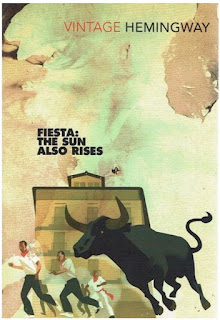End Zone

I begin by confessing my state of relative ignorance about Don Delillo, or the fact that he is a new acquaintance (take your pick). Up to reading End Zone , I had only read the collection The Angel Esmeralda: Nine Stories . Actually, that’s probably not a bad way to start, representing works of fiction from 1979 – 2011. End Zone is Delillo’s second novel; the year of publication is 1972 and the world is the midst of the Cold War. It’s a bleak intellectual landscape; the overall tone is a comic take on nihilism and apocalyptic expectations. Or, maybe that’s just my reading on hot January days in Sydney in the age of climate change. Delillo makes a few unusual choices in writing this book which give it startling originality. First, he writes in the first person as a footballer (American Football, that is, in the voice of Gary Harkness, a troubled but evidently talented blocking back). The setting is a small Texas college named ‘Logos’; much of the book concerns the ‘logic behind the


